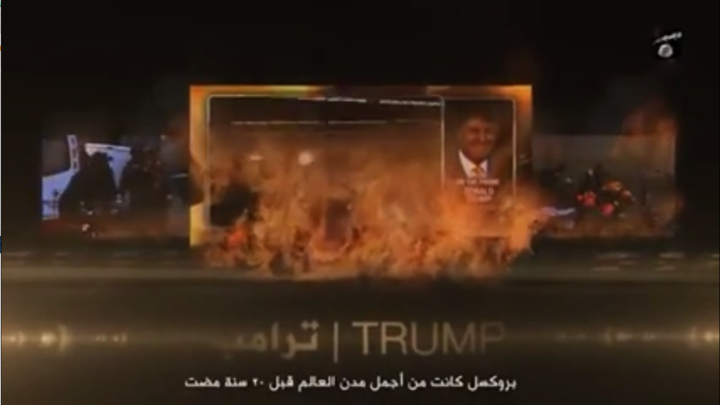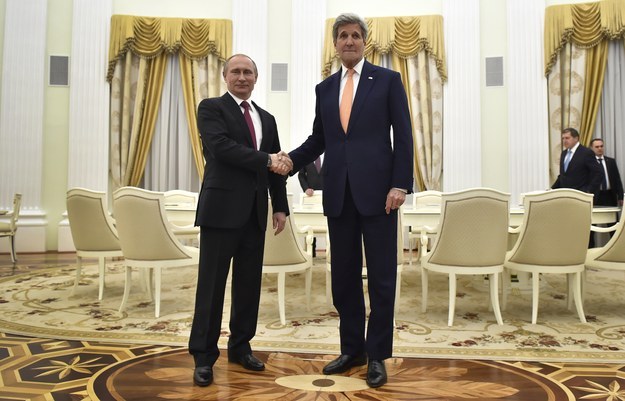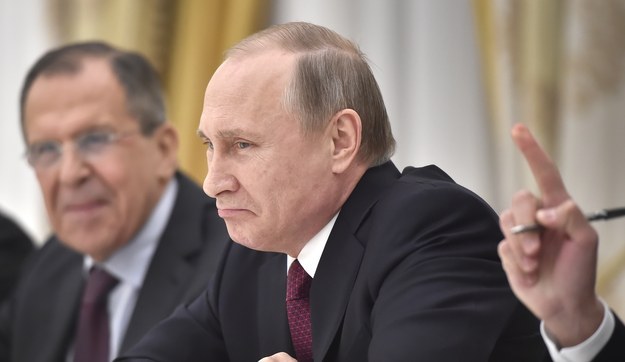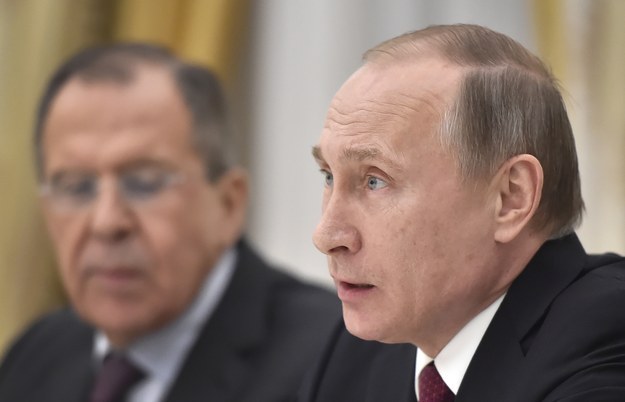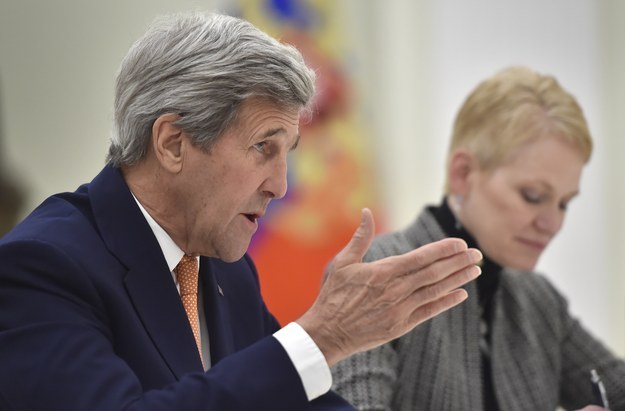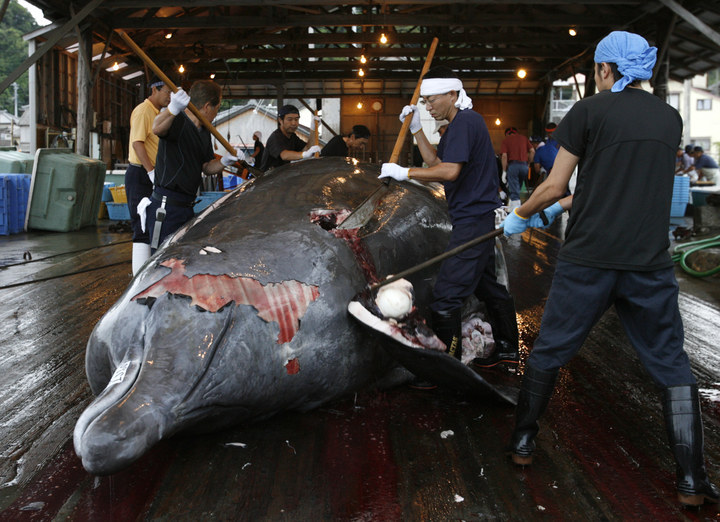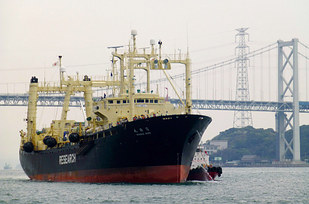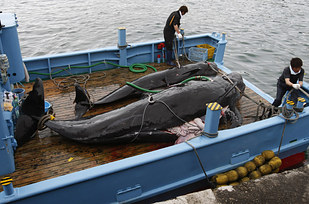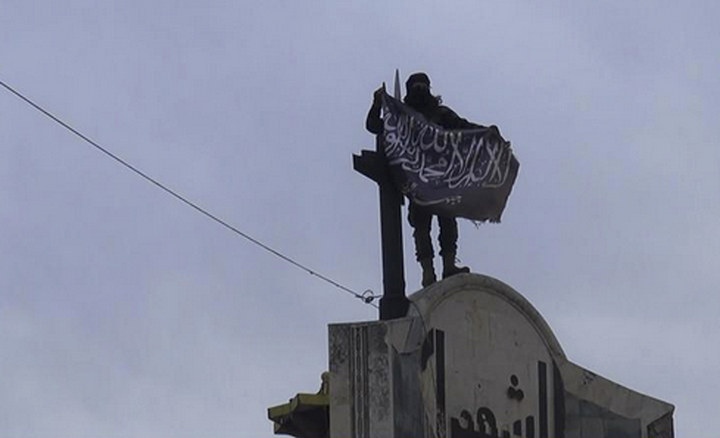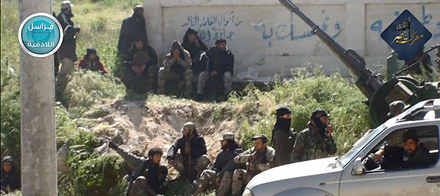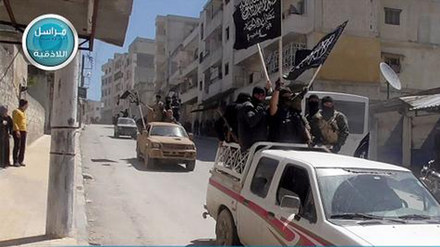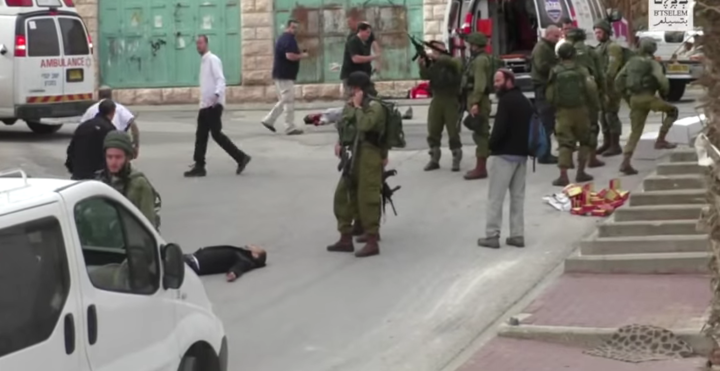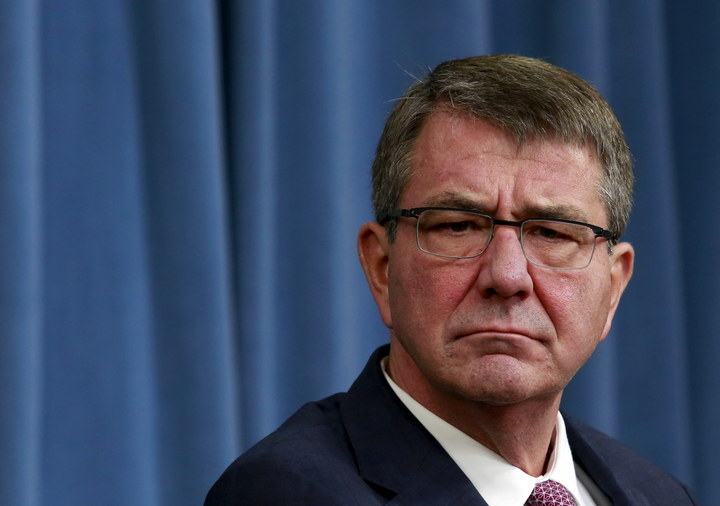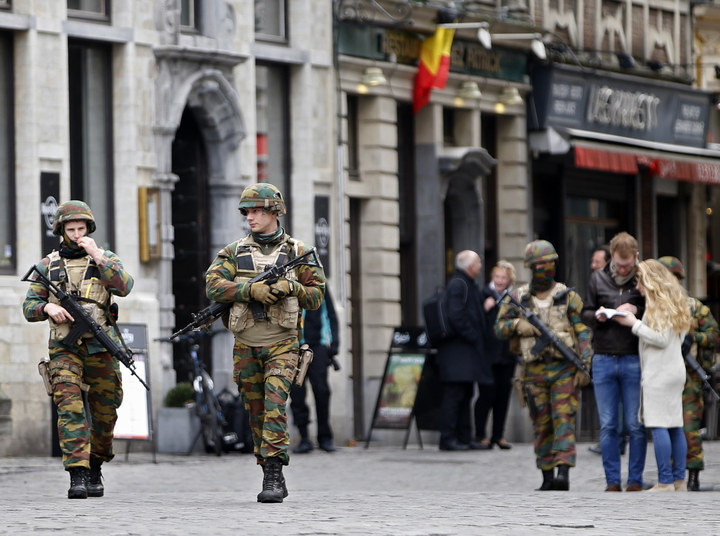A fighter from Syria’s al-Qaida-linked Nusra Front holds his group flag in Idlib province in April 2015 AP Photo/Nusra Front on Twitter
ISTANBUL — Syria’s al-Qaeda branch is seeking to emulate its
jihadi rival, ISIS, by establishing its own government in areas it
controls.
Over the past year, the Nusra Front, a powerful and
well-organized Syrian rebel army that is the country’s official arm of
al-Qaeda, has shifted tactics from being a solely military force to one
seeking to tighten its hold over areas under its control by seizing the
reins of governance, including law enforcement and municipal affairs, in
what its supporters have hinted could become its own emirate in the
northwestern Idlib province.
“They switched from just being a
military power to taking over services,” said Abu Yahya, nom de guerre
of a Syrian activist in the city of Muraat al-Noman, in Idlib province.
“Nusra is trying to build institutions and trying to oversee services.
They have now developed a love for power.”
The group’s efforts are concentrated on the city of Idlib, which the regime surrendered last year
as a coalition of Islamist rebel groups that included Nusra pushed its
way into the city. Over the following months, Nusra began to muscle out
other rebel groups when it came to running the city. It did the same in
other parts of Idlib province, where it has sought to create an
institution called the The Liberated Districts Administration (Idaret al Manateq al Muharrarra),
in an area that includes the cities of Idlib, Reeha and Jusr
al-Shughoor, which would give them direct control of taxation,
sanitation, electricity, water and as well as municipal governance.
ISIS,
which began as an offshoot of Nusra before turning against it in 2013,
distinguished itself from other rebel groups by creating government
institutions in areas under its control. Unlike other jihadi groups that
relied on donations from abroad, ISIS partly funded itself by taking on
the functions of the state. Those living in ISIS-held territory pay
taxes, tolls and fees to the jihadi group, allowing it to pay salaries
and fund its war. Now Nusra, which has fought against ISIS in the past,
wants to follow the same model to build its own emirate in northwest
Syria.
“It’s feeling a sense of competition from ISIS, and wants
to show it’s capable of playing a governance role and not just a
military one,” said Lina Khatib, a Middle East expert at the School for
Oriental and African Studies in London.
Nusra Front fighters in the town of Jisr al-Shughour, Idlib province AP Photo/Nusra Front on Twitter
But the jihadi group’s ambitions have been partly thwarted by
civil society activists who were at the vanguard of the 2011 uprising
against the rule of Bashar al-Assad and are now resisting its plans, say
local activists and scholars tracking the conflict.
“Because the
violence has gone down, civil society activists have retaken to the
streets, and they tend to embrace the uprising’s pluralistic goals in a
way that Nusra finds threatening and directly contradicts their
ideology,” said Noah Bonsey, a Syria researcher at the International Crisis Group.
A
cessation of hostilities deal agreed to last month has slowed Russian
airstrikes and Syrian barrel bombs. Syrian activists like Abu Yahya have
emerged from the rubble, taking to the streets, speaking out publicly
and making known their efforts to govern themselves via the local
councils established years ago, and publicizing their work through
social media, as they did initial months of the uprising. They are now
are seeking to present to the world a different picture of the political
landscape in rebel areas.
“People have taken a deep breath and
are able to go back to organizing the protests,” said Kenan Rahmani, a
28-year-old Syrian American law student at the American University in
Washington D.C., who spent 10 days in Syria’s Aleppo and Idlib provinces
this month.
“The ceasefire demonstrates the revolution never
really stopped,” he said in a telephone interview from the U.S. “Now
that the airstrikes have stopped, the revolution has reverted to the
default state, which is to protest and revolt against the Assad regime,
the primary instigator of atrocities in Syria.”
But on the ground
in Idlib, it is Nusra and not the regime that poses the greatest
challenge to the renascent protest movement. The group long ago began to
set up Islamic courts to punish its own dissenters or enemies caught on
the battlefield. It has also established security checkpoints in areas
under its control . Nusra for years took a cautious approach toward
seizing full control of areas where it held sway, opting to build
relations with locals and burnishing its popularity with its battlefield
successes. Perhaps watching the regime, ISIS, and Kurds seeking to lock
in their gains, last year, for the first time, the group started
targeting government institutions to bring them under its control.
But
Nusra encountered resistance each step of the way, and so far has been
unable to fully emulate ISIS’s model of a self-sustaining emirate. Abu
Yahya said that Nusra quickly alienated many locals under its rule
because of its incompetence. “Their services were bad,” he said. “They
took large amounts of taxes and didn’t offer a lot. They started making a
lot of bad decision in their rule. They tried to be good rulers but
they really failed, that’s why the people are alienated from them.”
Nusra Front fighters touring the streets of Jisr al-Shughour, Idlib province in April 2015 AP Photo/Nusra Front on Twitter
Khatib suggested the demographic makeup of Syria’s northwest
made it more difficult for Nusra to establish its own emirate. “Idlib
and other areas in Western Syria are highly urbanized with a higher
number of educated middle-class Syrians,” she said. “In the eastern
areas the residents are more tribal and socially conservative. This
underlines the importance of civil society in the conflict.”
Over
the last month, Nusra burned the popular flag of the Syrian opposition
and arrested those protesting its rule in Idlib. In Murat al-Noman,
Nusra recently attacked the 13th Brigade, a relatively moderate unit of
the U.S.-backed Free Syrian Army, hoping to chase it from the city and
seize its weapons. In response, locals took to the streets and
demonstrated in support of the rebel group for nearly two weeks.
“This
is not something Nusra likes,” Abu Yahya said. “They want a state where
no one intervenes, where no one says, ‘no,’ or ‘what are you doing?’
This is something we don’t accept, something the people won’t accept.
During
recent protests in Murat al-Numan, Nusra militants reportedly arrested
some activists and warned them that it would not tolerate street
demonstrations under the banner of the Syrian revolutionary flag. But
the protesters and public pressure overwhelmed members of the group, and
they eventually relented.
“The perception is that Nusra has very
tight control over the people and the area,” said Rahmani. [But] Nusra
doesn’t have the tight control of ISIS or the regime.”













